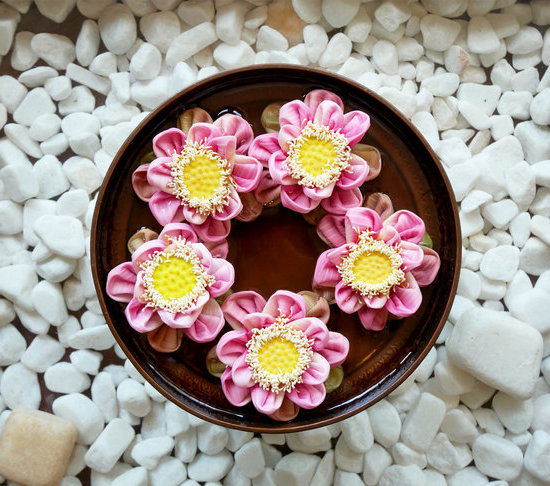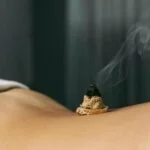Aromatherapy has been gaining popularity in recent years for its perceived benefits on physical and mental health. But is it safe to breath aromatherapy? Aromatherapy is the use of essential oils extracted from plants to promote relaxation, relieve stress, improve sleep, and boost overall well-being. These essential oils can be inhaled through various methods such as diffusers, steam inhalation, or even directly from the bottle.
The practice of aromatherapy involves using these natural aromatic compounds to enhance both physical and emotional health. The molecules in essential oils are believed to interact with the body’s chemistry when they are inhaled, leading to therapeutic effects. Some common essential oils used in aromatherapy include lavender for relaxation, peppermint for mental clarity, and eucalyptus for respiratory support.
Aromatherapy offers a range of potential benefits, including reducing anxiety and depression, alleviating headaches, improving sleep quality, and even boosting immune function. However, it is important to address safety concerns associated with inhaling essential oils. While aromatherapy is generally considered safe for most people when used properly, there are risks and side effects that need to be considered before incorporating it into your daily routine.
What Is Aromatherapy
Aromatherapy is a holistic healing treatment that uses natural plant extracts, known as essential oils, to promote physical and mental well-being. These aromatic compounds are extracted from various parts of plants and have been used for centuries for their therapeutic properties. The practice of aromatherapy involves inhaling the scents of these essential oils or using them in massage oils, baths, or diffusers.
To understand how aromatherapy works, it is important to recognize that our sense of smell plays a crucial role in the process. When we inhale the molecules of essential oils, they travel through our nasal passages and stimulate the olfactory system. This sensory stimulation then sends messages to the brain, affecting our emotions, mood, and even our physiological responses. For example, inhaling lavender essential oil may help reduce stress and promote relaxation due to its calming scent.
Key Aspects of Aromatherapy
- Essential Oils: These concentrated plant extracts are at the core of aromatherapy.
- Absorption Methods: Apart from inhalation, essential oils can also be absorbed through the skin during massages or baths.
- Dilution: It is recommended to dilute essential oils with carrier oils before applying them directly on the skin to avoid irritation.
As we delve deeper into exploring aromatherapy techniques and methods in this article, it becomes evident that this ancient practice offers a wide range of benefits beyond just relaxation. From improving sleep quality to relieving headaches and even boosting immunity, aromatherapy has something to offer for everyone looking to enhance their overall well-being naturally.
But before diving into using essential oils for aromatherapy purposes, it is crucial to address safety concerns and understand any potential risks associated with inhaling these potent substances.
Types of Aromatherapy
Aromatherapy encompasses a variety of techniques and methods that can be used to enjoy the benefits of essential oils. From diffusers to bath salts, there are different ways to incorporate aromatherapy into your daily routine. Each method offers unique benefits and can cater to individual preferences.
Diffusers
One popular way to experience aromatherapy is through the use of diffusers. These devices disperse essential oil molecules into the air, allowing you to inhale the scents and reap their therapeutic benefits. There are various types of diffusers available, including ultrasonic, nebulizing, and heat diffusers. Each type has its own strengths and considerations, so it’s important to choose one that suits your needs.
Topical Application
Another common method of using aromatherapy is through topical application. This involves diluting essential oils with carrier oils and applying them directly to the skin. By massaging the oils into the skin, you can experience both the aromatic benefits as well as potential absorption through the skin. When using essential oils topically, it is important to follow proper dilution guidelines to avoid irritation or sensitization.
Inhalation
Inhalation is a direct way of experiencing aromatherapy by breathing in the scents of essential oils. This can be done by adding a few drops of oil to a bowl of hot water or a facial steamer, creating a DIY inhaler, or simply taking deep breaths from an open bottle of oil. Inhaling essential oils can have immediate effects on mood and stress levels, making it a convenient way to use aromatherapy throughout the day.
When considering which type of aromatherapy method is best for you, it’s important to think about your personal preferences, concerns, and goals for incorporating essential oils into your life. Whether you prefer diffusing oils at home or carrying an inhaler with you on-the-go, there are numerous ways to enjoy the benefits of aromatherapy safely and effectively.
So, when asking yourself “Is it safe to breath aromatherapy?” know that with proper usage and precautions, inhaling essential oils can be a beneficial practice for overall well-being.
Benefits of Aromatherapy
Aromatherapy has gained popularity for its potential benefits in promoting physical and mental well-being. The use of essential oils in aromatherapy is believed to have therapeutic properties that can positively impact an individual’s overall health. Below are some of the key benefits of incorporating aromatherapy into your wellness routine:
- Stress Relief: Aromatherapy is known for its calming and stress-relieving effects. Certain essential oils like lavender, chamomile, and bergamot are commonly used to help reduce feelings of anxiety and promote relaxation.
- Improved Sleep: Many people turn to aromatherapy to improve the quality of their sleep. Essential oils such as lavender and cedarwood are believed to have sedative properties that can help promote a restful night’s sleep.
- Mood Enhancement: Aromatherapy can also be used to uplift mood and improve emotional well-being. Citrus scents like lemon, orange, and grapefruit are often used to boost mood and increase feelings of happiness.
In addition to these benefits, aromatherapy is also thought to have positive effects on physical ailments such as headaches, nausea, and muscle pain. Whether used through inhalation or topical application, essential oils in aromatherapy are believed to provide relief for a variety of symptoms.
When considering incorporating aromatherapy into your self-care routine, it is important to understand the safety precautions associated with inhaling essential oils. While many individuals benefit from using aromatherapy as a complementary therapy, it is crucial to be aware of potential risks and side effects that may arise from improper use. By following guidelines for safe practice and consulting with a healthcare professional when needed, you can enjoy the many benefits that aromatherapy has to offer for your well-being.
Safety Concerns
Concerns About Inhaling Essential Oils
One of the common safety concerns when it comes to aromatherapy is the potential risk of inhaling essential oils. While there are many benefits associated with aromatherapy, improper use or overuse of essential oils can lead to adverse effects. Essential oils are highly concentrated substances and can be harmful if not used correctly. It is important to dilute essential oils properly before inhaling them and always follow guidelines on safe usage.
Effects on Respiratory System
Another concern is how inhaling essential oils may affect the respiratory system. Some people may have sensitivities or allergies to certain essential oils that can trigger respiratory issues such as coughing, chest tightness, or shortness of breath. Individuals with asthma or other respiratory conditions should consult with a healthcare provider before using aromatherapy to ensure that it is safe for them.
Interaction With Medications
It is also crucial to consider the potential interactions between essential oils used in aromatherapy and medications. Certain essential oils can interfere with medications by either enhancing or diminishing their effects.
Before incorporating aromatherapy into your routine, especially if you are on any prescription medications, it is advisable to seek advice from a healthcare professional to avoid any possible risks or complications. Taking necessary precautions and being informed about the safe practices of using aromatherapy can help mitigate these safety concerns and ensure a positive experience.
Risks and Side Effects
Aromatherapy has gained popularity as a natural remedy for various physical and mental health issues. However, it is essential to understand that there are potential risks and side effects associated with inhaling essential oils in aromatherapy. One of the main concerns is the possibility of an allergic reaction to certain oils, which can manifest as skin irritation, respiratory problems, or even anaphylaxis in severe cases.
Another risk to consider is the improper use of essential oils, such as using them in high concentrations or for extended periods. This can lead to headaches, dizziness, nausea, or other adverse reactions. Certain essential oils also have phototoxic properties, which can make the skin more sensitive to sunlight and increase the risk of sunburns or skin damage.
To ensure safe use of aromatherapy and minimize potential risks and side effects, it is crucial to follow specific precautions and best practices. These include diluting essential oils with a carrier oil before applying them to the skin, conducting a patch test prior to use to check for any allergic reactions, and avoiding prolonged exposure to concentrated essential oils.
By being mindful of these guidelines, you can enjoy the benefits of aromatherapy while reducing the likelihood of experiencing any harmful effects.
| Risks and Side Effects | Implications |
|---|---|
| Allergic Reactions | Skin irritation, respiratory problems, anaphylaxis |
| Improper Use | Headaches, dizziness, nausea from high concentrations |
| Phototoxicity | Sensitive skin to sunlight leading to burns or damage |
Precautions and Best Practices
Aromatherapy is a practice that involves using natural plant extracts, known as essential oils, to promote overall well-being. The benefits of aromatherapy are vast and can positively impact both physical and mental health. These essential oils can be inhaled, applied to the skin, or even ingested in some cases. However, when it comes to inhaling essential oils, many individuals wonder, “is it safe to breath aromatherapy?”.
When using aromatherapy through inhalation, there are several precautions and best practices to keep in mind to ensure safety. Firstly, it is crucial to dilute essential oils before inhaling them directly. Undiluted essential oils can be too potent and may cause irritation or allergic reactions when inhaled. Mixing essential oils with carrier oils like coconut or almond oil can help reduce the concentration and potential adverse effects.
Additionally, proper ventilation is key when using aromatherapy through inhalation. It’s important to use aromatherapy diffusers in well-ventilated areas to prevent the accumulation of too much essential oil vapor in an enclosed space. This helps minimize the risk of respiratory irritation or other negative effects.
Finally, always follow the recommended guidelines for the duration and frequency of aromatherapy inhalation sessions to avoid overexposure to essential oils. By adhering to these precautions and best practices, you can safely enjoy the benefits of aromatherapy without putting your health at risk.
| Precautions | Best Practices |
|---|---|
| Dilute essential oils before inhalation | Use proper ventilation during inhalation sessions |
| Avoid inhaling undiluted essential oils | Follow recommended guidelines for duration and frequency |
Conclusion
In conclusion, aromatherapy is a popular holistic healing practice that harnesses the power of essential oils to promote physical and mental well-being. The benefits of aromatherapy are numerous, ranging from stress relief and improved sleep to enhanced mood and focus. However, when it comes to safety concerns about breathing in aromatherapy, it is essential to approach this practice with caution.
While aromatherapy is generally safe for most people when used correctly, there are potential risks and side effects to be aware of. Inhaling essential oils directly or in excess amounts can lead to irritation of the respiratory system, skin sensitivity, allergic reactions, or even toxicity in some cases. It is crucial to dilute essential oils properly before inhalation and consult with a healthcare professional if you have any underlying health conditions or concerns.
To ensure the safe use of aromatherapy, it is important to follow precautions and best practices recommended by experts. Always choose high-quality essential oils from reputable sources, avoid prolonged inhalation or exposure to strong concentrations, and consider using a diffuser for a more gentle dispersal of the aroma.
By being informed and practicing mindfulness in your usage of aromatherapy, you can enjoy its benefits while minimizing any potential risks to your health. Ultimately, with proper care and attention, breathing in aromatherapy can be a safe and effective way to enhance your overall well-being.
Frequently Asked Questions
What Essential Oils Are Safe to Inhale?
Essential oils that are safe to inhale include lavender, peppermint, eucalyptus, and tea tree oil. It’s important to ensure the oils are pure and properly diluted before inhalation to prevent any adverse reactions.
How Long Is It Safe to Inhale Essential Oils?
The safety of inhaling essential oils depends on various factors such as the type of oil, its purity, and individual sensitivity. In general, it is recommended to limit inhalation sessions to 15-60 minutes at a time. Prolonged exposure can lead to respiratory issues or allergic reactions.
Are Fragrance Oils Safe for Lungs?
Fragrance oils are not recommended for inhalation as they often contain synthetic chemicals that can be harmful to the lungs when inhaled. Unlike essential oils derived from plants, fragrance oils do not offer therapeutic benefits and may cause irritation or sensitization in the respiratory system.

Are you looking for a natural way to improve your health and wellbeing?
If so, aromatherapy may be the answer for you.





